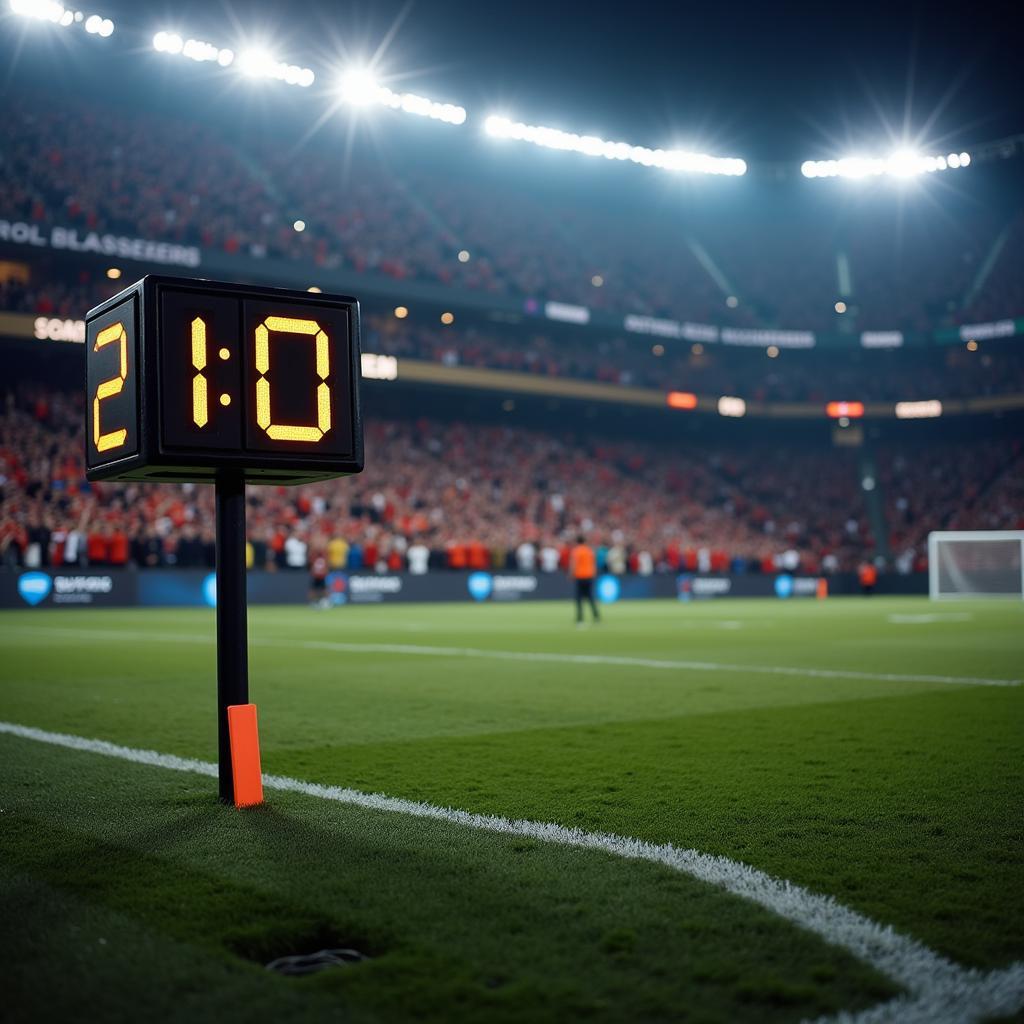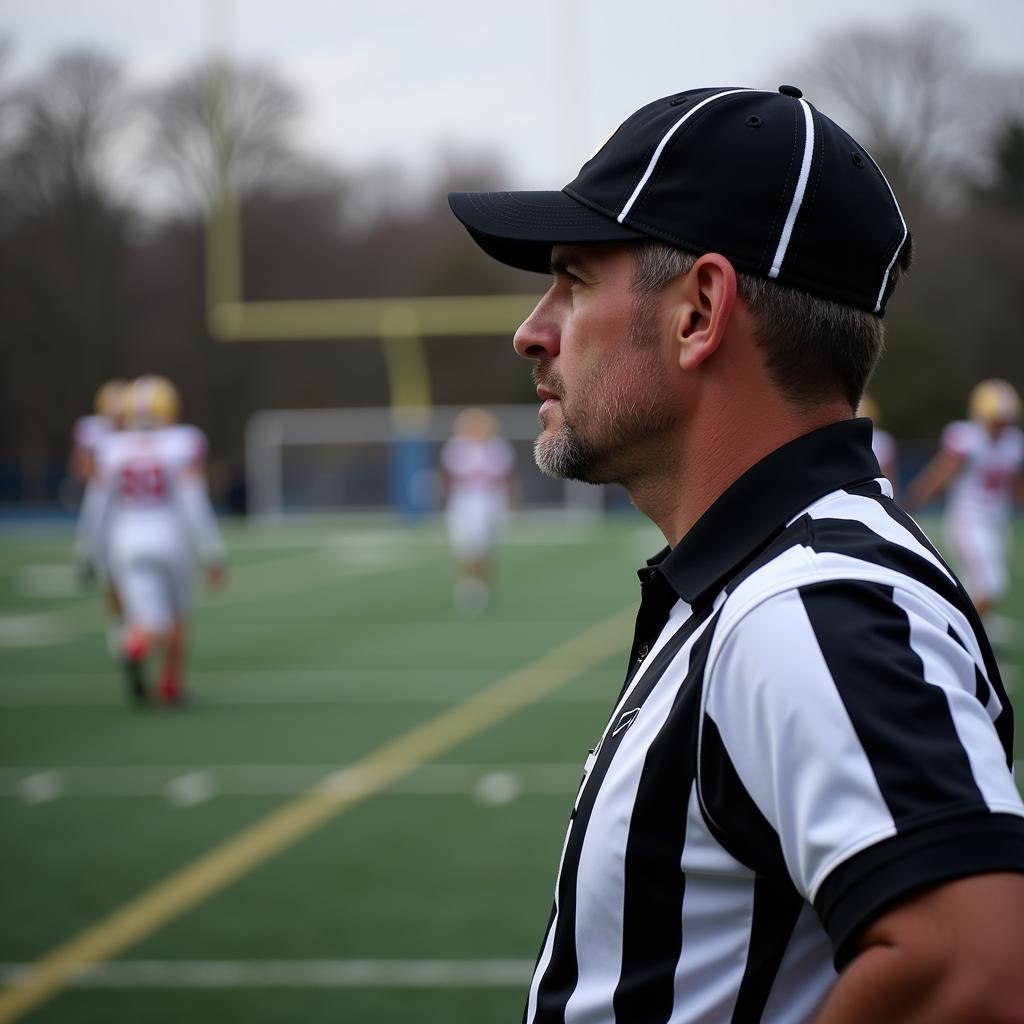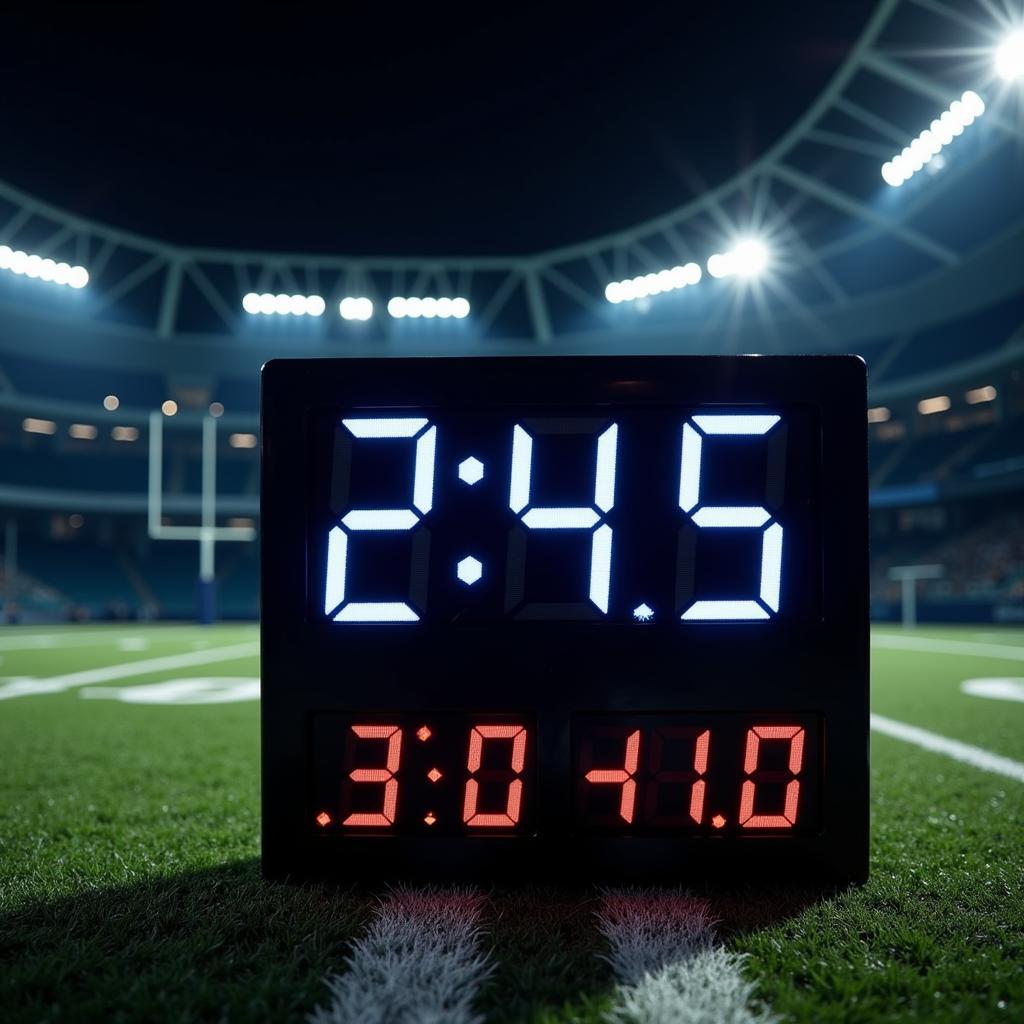A Football Play Clock Timer is an essential tool for maintaining the pace of play in American football. It sets the time limit for each team to execute a play, adding an element of urgency and strategy to the game.
 Football Play Clock in a Packed Stadium
Football Play Clock in a Packed Stadium
Understanding the Basics of the Football Play Clock
The play clock typically counts down from 40 seconds, although this can vary depending on the specific rule set and game situation. When the offensive team takes possession of the ball, the play clock starts, signaling the time limit they have to snap the ball for the next play.
Why is a Football Play Clock Important?
The play clock serves several critical functions:
- Prevents Delay of Game: It encourages teams to keep the game moving, preventing unnecessary delays and maintaining a consistent pace.
- Adds Strategic Element: The time constraint forces coaches to make quick decisions and players to execute plays efficiently.
- Enhances Fairness: By providing a standardized time frame for each play, the play clock ensures fairness for both teams.
Different Play Clock Scenarios
While the standard play clock is 40 seconds, certain situations can alter its duration.
- Penalty Enforcement: Following a penalty, the play clock may reset to 25 seconds or remain at the current time, depending on the specific infraction.
- Incomplete Pass: After an incomplete pass, the play clock typically resets to 40 seconds.
- Out of Bounds: When a player goes out of bounds, the play clock usually restarts at 40 seconds.
 Referee Monitoring Football Play Clock
Referee Monitoring Football Play Clock
Impact of the Play Clock on Game Strategy
The play clock has a significant influence on how teams approach the game:
- Hurry-Up Offense: Teams use a fast-paced offense, snapping the ball quickly to catch the defense off guard and limit their reaction time.
- Time Management: As the game winds down, managing the play clock becomes crucial for controlling possession and potentially running out the clock.
- Play Calling: Coaches consider the play clock when calling plays, opting for simpler plays when time is limited.
Technological Advancements in Play Clock Systems
Modern football stadiums boast sophisticated play clock systems to ensure accuracy and visibility.
- Digital Displays: Large, easy-to-read digital displays are strategically placed around the stadium to provide clear visibility of the play clock.
- Wireless Communication: Referees can control the play clock wirelessly, ensuring precise timekeeping and adjustments.
FAQs about Football Play Clock Timers
1. What happens if the play clock runs down to zero?
When the play clock expires before the offense snaps the ball, a “Delay of Game” penalty is assessed, resulting in a loss of yardage for the offensive team.
2. Can the defense attempt to influence the play clock?
Defensive players cannot intentionally interfere with the play clock. However, they can try to disrupt the offense’s rhythm and timing, potentially forcing them to waste precious seconds.
 Modern Digital Football Play Clock
Modern Digital Football Play Clock
Conclusion
The football play clock timer is an indispensable component of American football, dictating the pace of play and introducing strategic elements. Understanding its rules and implications enhances your appreciation for the game’s complexities and excitement.
For any assistance, please contact us at Phone Number: 0902476650, Email: [email protected] or visit us at 139 Đ. Võ Văn Kiệt, Hoà Long, Bà Rịa, Bà Rịa – Vũng Tàu, Vietnam. We have a 24/7 customer support team.





